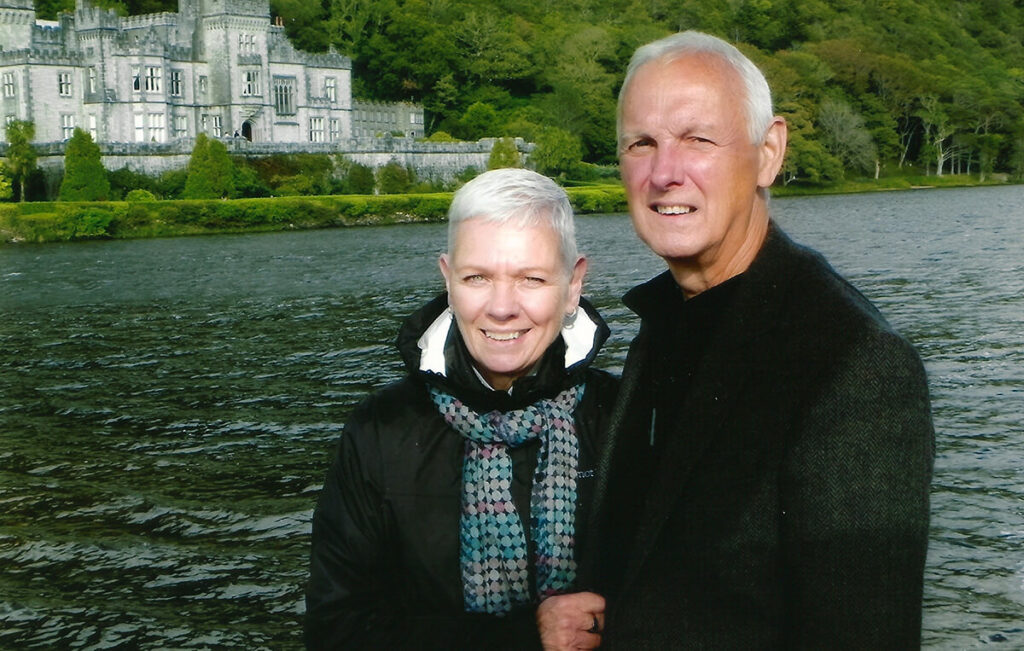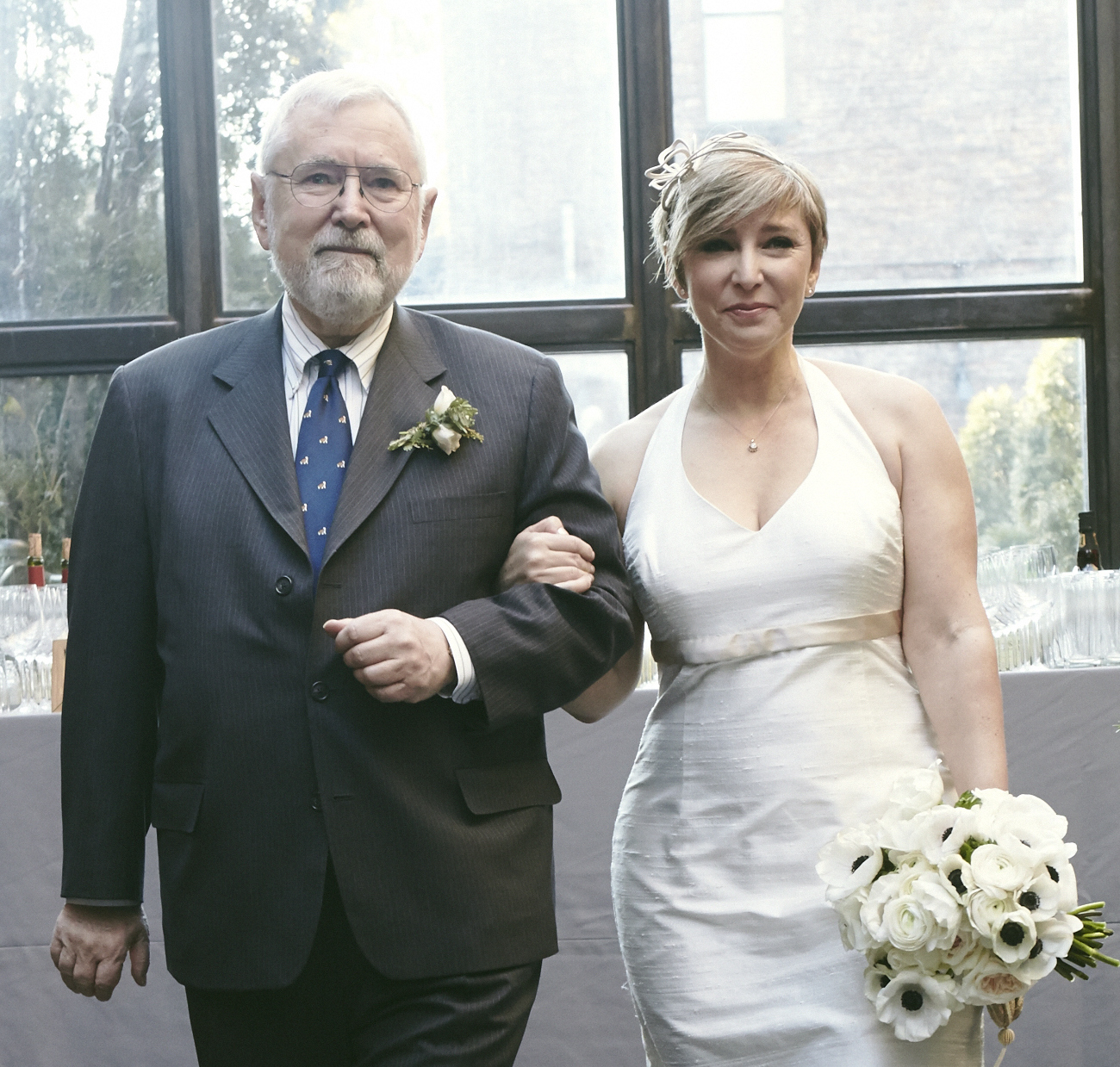Steve Doyle was a tech specialist in Bowling Green, Ohio. He died on April 8, 2019.
I injured myself on the job in October 2015. It was the middle of the night and I was finishing up at a job site. I hurt, but not so much that I didn’t go on to another site two states away the next night where I did exactly the same. That night was bad. So much so that I couldn’t get up the next morning. I spent the day in a motel room taking ibuprofen. And then I drove another four hours to another job.
Returning home, I tried acupuncture and other remedies, but the pain didn’t abate. In fact, it got worse. I went to my doctor who ordered X-rays and blood tests to measure my PSA (prostate-specific antigen). X-rays revealed compression fractures up and down my spine. My PSA was “off the charts.”A prostate biopsy confirmed a tumor—a very aggressive prostate cancer. Stage IV.
There is no cure for Stage IV prostate cancer but we began treatment.
A medical oncologist prescribed 6 courses of docetaxel, a chemotherapy drug. Not fun at all. Then came hormone therapy, which worked pretty well for about a year. Predictably, though, it failed, and the cancer remained. We then moved on to the next medication. It cost $10,000 a month at retail. We knew that it, too, would fail in 6 to 8 months. It has failed; I discontinued it a week ago.
Ceasing Treatment
Why did I make the choice to quit taking my medication and refuse further rounds of chemotherapy? I might buy a few more months through chemotherapy, but why would I want to spend a few months feeling as poorly as I did before? Another option was radium-223 dichloride injections. I would get maybe 8 additional weeks and a good likelihood of some ugly side effects. No thank you. Rather than fill my calendar with “dates with docs” I will live and enjoy the days remaining to the fullest extent possible.
My wife, Carol, and I are absolutely together on this. We talk about this often and have since my diagnosis. What she has said since the beginning is, “This is your choice and I’ll be OK with what you choose.”

Carol has worked as a hospice nurse and has her own experiences witnessing the suffering of patients at the end of their lives. Though she has never disclosed confidential information, I do know that some doctors say that the main issue is pain, and that they have the means to control pain: “We can provide patients with sufficient end-of-life care to control their pain and keep them comfortable. Despite their best intentions, it isn’t always so, and, when it isn’t, the end of a patient’s life can be nothing short of a horror story.
Everybody in my Irish Catholic family knows my position, as do most of my friends. Generally, they respect my decision, even if they may not agree with me. I talked with my kids long before I was diagnosed about my idea that every human being has a right to die with dignity, not laying in a hospital bed, doped up on drugs.
To Show Aliveness
I read an article in the New York Times entitled, “Waking Up to the Gift of Aliveness,” by Sean D. Kelly. He quoted Blaise Pascal who, 300 years ago, made a distinction between “life” and “aliveness.”
What I want to be is alive. I want to show aliveness. Merely having a pulse doesn’t make it so.
I still have a number of hobbies and passions. I write prose and poetry. I love music. I’m told I’m a superb cook. I continue to work, traveling around four states to make stuff work. But when I don’t—or can’t—enjoy those things anymore, I want to be able to determine the time and manner of my death.
To me, death with dignity means that if a person is competent, is not suffering from dementia, and can be fully aware of their acts, that there’s a point where it is more than OK for them to make the choice to say goodbye. When the universe starts closing in around you, when you lose your sense of autonomy and vigor and aliveness, it should be your right to choose how you want to go.
Nobody should be required to suffer. Period. Full stop. Suffering does not just mean pain. It can mean a loss of autonomy. Denying a person that right is to say, “we don’t care and you don’t matter; you have to suffer until your heart stops.” It is the height of hypocrisy and arrogance.
A Commitment to Political Change
I am very encouraged by Ohio State Senator Charleta Tavares’s Death with Dignity bill, introduced in January 2018, and am preparing to submit testimony in support of the proposed legislation when it is called for a second hearing.
The bill likely will not pass this session, and I won’t be alive long enough to see the day when Ohio finally approves an assisted-dying statute. But I still want to lend my voice to the Death with Dignity movement and dispel the specious arguments against the practice that arise every time the issue gains public attention.
There is no cure for my cancer. I have reached the end of the line with treatment options.
It is too late for me to benefit from Death with Dignity. But it isn’t too late for me to advocate for assisted dying as a basic right in the hopes that my words and those of others will someday make this a real option in Ohio.

